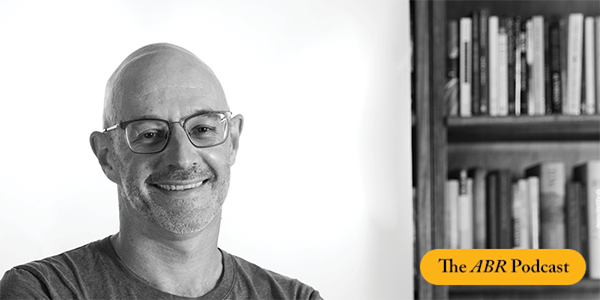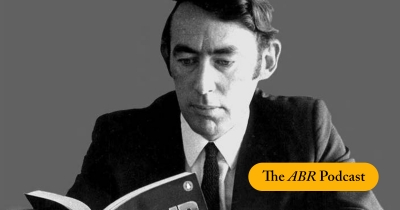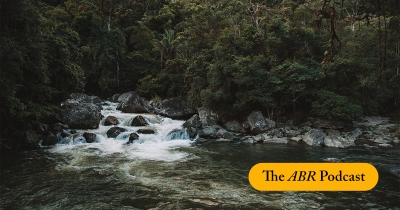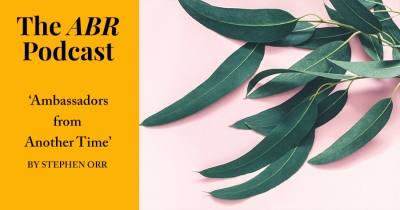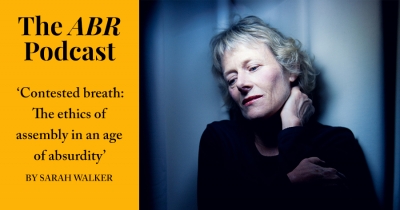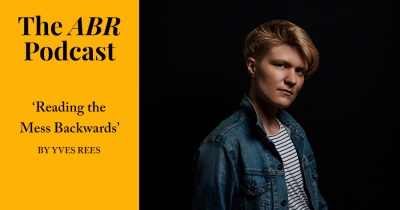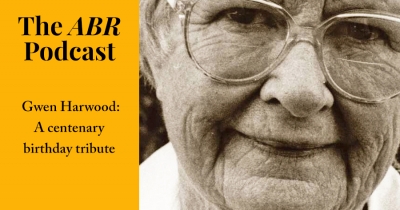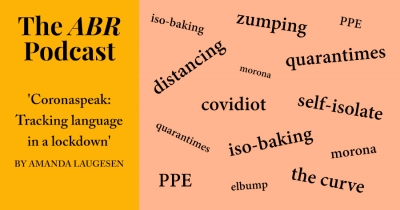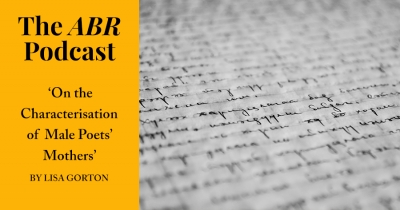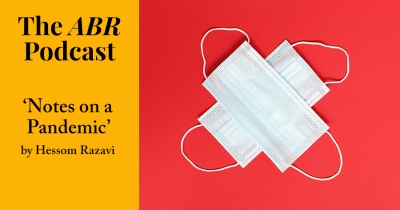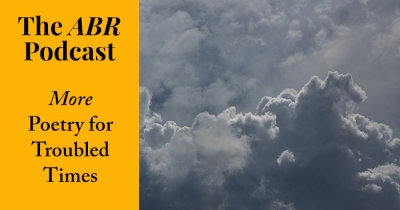Podcast
The ABR Podcast
Released every Thursday, the ABR podcast features our finest reviews, poetry, fiction, interviews, and commentary.
Subscribe via Apple Podcasts, Stitcher, Google, or Spotify, or search for ‘The ABR Podcast’ on your favourite podcast app.
‘Albanese’s “Australian Way”: The rise of “progressive patriotism” and its complex past’
by Sean Scalmer
This week, on The ABR Podcast, we feature Sean Scalmer’s commentary ‘Albanese’s “Australian Way”: The rise of “progressive patriotism” and its complex past’. Scalmer investigates Albanese’s definition of the ‘Australian Way’, which ‘served as a touchstone on the campaign trail’, and asks what this ethos represents for the Labor government, particularly in the context of Australia’s complex history of labour reform. Sean Scalmer is Professor of History at the University of Melbourne and his latest book is A Fair Day’s Work: The quest to win back time. Here is Sean Scalmer with ‘Albanese’s “Australian Way”: The rise of “progressive patriotism” and its complex past’, published in the October issue of ABR.
Recent episodes:
In today's episode, we present James Ley’s hilarious and deeply serious review of The Trials of Portnoy by Patrick Mullins. James channels the memorable prose of Philip Roth himself. Mullins’s book chronicles the legal spat that surrounded Penguin's attempt to publish Portnoy's Complaint, Roth's controversial novel that was considered lewd and offensive by Australia's censuring authorities.
... (read more)It’s Jolley time again! In August we’ll name the winner of the 2020 ABR Elizabeth Jolley Short Story Prize. It’s timely then to revisit last year’s winner: Sonja Dechian's poignant story 'The Point-Blank Murder', which was selected by judges Maxine Beneba Clarke, John Kinsella, and Beejay Silcox from a field of thirteen hundred and fifty entries. In today's episode, Sonja Dechian reads 'The Point-Blank Murder' in full.
... (read more)Each year, ABR publishes an issue dedicated to sustainability, climate change, and the environment. In today’s episode, we look back on Stephen Orr’s Eucalypt Fellowship essay, which was the feature of the October 2017 issue of ABR. His essay, ‘Ambassadors from Another Time’, attempts to understand Australia’s complex relationship with the eucalypt, examining the nation’s evolving understanding of these iconic trees.
... (read more)'Contested breath: The ethics of assembly in an age of absurdity' by Sarah Walker
What's it like losing a parent amid a pandemic? How do we mourn and celebrate when Covid-19 has made all public gatherings problematic? In her highly personal essay 'Contested breath', Sarah Walker explores with wit, humour and an unforgettable poignancy her experience of her mother's death during the coronavirus pandemic, and how to find the space to grieve when the world itself is shaken.
... (read more)The Calibre Essay Prize is one of the world's leading prizes for an original non-fiction essay. This year was the fourteenth time ABR has presented the prize, which is now worth a total of $7,500. The winner of this year's prize is Dr Yves Rees, whose essay is titled 'Reading the Mess Backwards'. Rees, who came out as transgender aged 31, describes their essay as 'a story of trans becoming that digs into the messiness of bodies, gender, and identity'. The full essay appears in the June-July issue of ABR.
... (read more)Gwen Harwood, who died in 1995, was born on 8 June 1920, in Brisbane, of course, which she went loved dearly. Harwood seems increasingly to have been one of the finest poets Australia has ever produced. She was much loved; anyone who knew her relished her wit, her directness, her inextinguishable spirit. To mark the centenary of her birth, ABR asked a number of her colleagues and admirers to record some of her poems. Happily, there are hundreds of them to explore.
... (read more)Lexicographers, not just newspapers and television, respond to disasters. Language is never fixed, never finished, never done. In recent months, language has been shaped by the coronavirus. In this episode, Amanda Laugesen, director of the Australian National Dictionary Centre at ANU and editor of The Australian National Dictionary, discusses coronaspeak, the language of lockdown.
... (read more)Lisa Gorton began publishing in ABR in 2003. Since then she's given us several dozen review essays and poems. Lisa has published three poetry collections, most recently the acclaimed Empirical, a Giramondo publication. Her novel, The Life of Houses, shared the 2016 Prime Minister's Literary Award for Fiction.
This month we published Lisa's long poem 'On the Characterisation of Male Poets' Mothers'. As Lisa explains, the poem almost entirely comprises a medley of quotes that describe famous poets' mothers – sourced all from Wikipedia.
... (read more)In his first article for ABR, 'Notes on a Pandemic', Behrouz Boochani Fellow Hessom Razavi offers a powerful reflection on the current Covid-19 crisis. Dr Razavi, an ophthalmologist, reflects on his own clinical experiences and interviews with senior medicos (including Dr Nick Coatsworth, the Deputy Chief Medical Officer) to provide a nuanced and compelling portrait of our changing lives. He examines the ways in which society has responded to the pandemic and questions what kind of world his daughter (due shortly) will be born into.
... (read more)All literature, but poetry in particular for some of us, becomes more important during the pandemic. Last month, we invited a group of poets and critics to read favourite poems of theirs, from any country or century. We know how much you enjoyed it; the response has been fantastic. So we've invited fifteen more poets and poetry lovers to read a poem that resonates for them and that might speak to others as we hunker down and live more privately.
... (read more)

